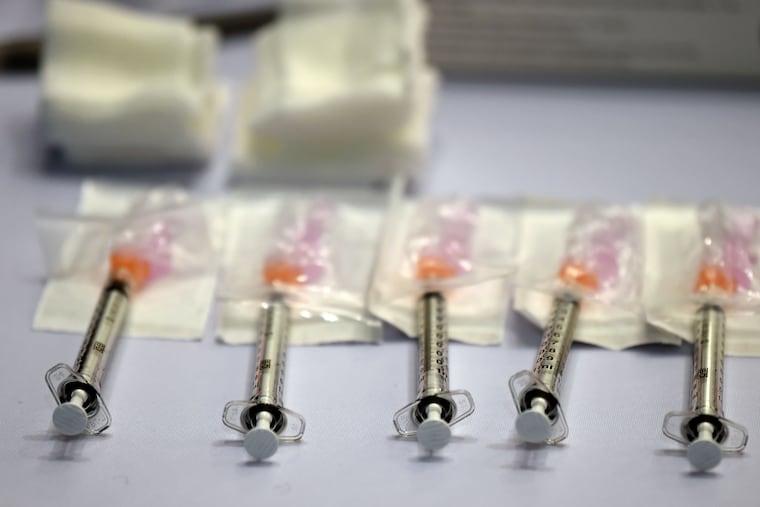Moderna booster shot should provide ‘good level of protection’ against omicron, vaccine-maker says
Vaccine manufacturer Moderna said Monday that a booster dose of its coronavirus vaccine significantly raised antibody levels against the omicron variant, amid growing concerns about its rapid spread in the United States.

Vaccine manufacturer Moderna said Monday that a booster dose of its coronavirus vaccine significantly raised antibody levels against the omicron variant, amid growing concerns about its rapid spread in the United States.
A booster dose of Moderna's vaccine - half the dose used in the original shots for adults - increased antibody levels against omicron by 37 times, the company said in a statement, citing preliminary data.
Those antibodies "should provide some good level of protection as we go into the holiday season," Paul Burton, Moderna's chief medical officer, said in an interview.
Federal health officials warned this weekend, ahead of Christmas and New Year's gatherings, that the United States could face record levels of coronavirus cases in the coming days. New York state has for three straight days reported record case numbers, and officials said the country could soon face the same fate.
About half of coronavirus cases nationally are of the omicron variant, Anthony S. Fauci, the country's top infectious-disease expert, said Sunday on CNN. Because of omicron, the United States could soon reach 1 million new cases each day, Francis Collins, director of the National Institutes of Health, told CBS on Sunday.
"The big question is, are those million cases going to be sick enough to need health care and especially hospitalization?" Collins said. "We're just holding our breath to see how severe this will be."
Burton said that while Moderna did not yet have clinical data to speak to its vaccine's protection against hospitalization and death, Monday's data was "very reassuring because we've seen time and time again . . . that the vaccine is highly effective at preventing infection, hospitalization and death due to covid."
Moderna is still pursuing an omicron-targeted vaccine, though its statement said that given the variant's rapid spread, the company's "first line of defense against omicron" would be a booster of its existing vaccine. Its omicron-specific vaccine candidate will advance to clinical trials early next year, the company said.
The current vaccine, Burton said, is "what we have right now, as we're heading into the eye of the storm of omicron."
Moderna also announced that a dose double the size of a normal booster, equivalent to that used in the main shots and in the third dose given primarily to immunocompromised people, raised antibody levels by 83 times.
The Centers for Disease Control and Prevention recommends this third, "primary shot" of the vaccine for people who are moderately or severely immunocompromised, such as those undergoing cancer treatment, taking immunosuppressing medication, or living with advanced or untreated HIV. Other vulnerable populations, such as the elderly and people who work in high-risk settings, were instead among the first to be eligible for booster shots.
The "exceptional" response from the larger dose, Burton said, could signal to officials that a higher dose may be useful in "certain high-risk individuals."
Many Americans have yet to get a booster shot: About 18 percent of the U.S. population has had one, according to CDC data. About 61 percent of Americans have been fully vaccinated.